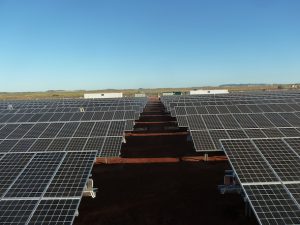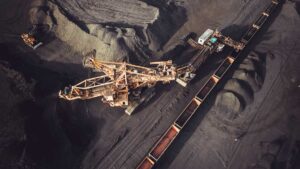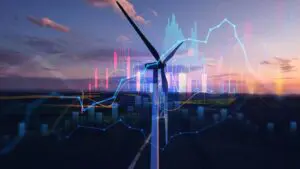Australia has again courted controversy on the international stage, refusing to send its energy minister to a key meeting of the world’s peak renewable energy body, and sending instead a mere embassy staffer to the annual congress of the International Renewable Energy Agency.
 IRENA met in Abu Dhabi last weekend, ahead of the World Energy Future Conference in the same venue. Some 150 members sent delegates and 65 of those countries sent their energy ministers. The heads of numerous energy companies, and financing chiefs also attended.
IRENA met in Abu Dhabi last weekend, ahead of the World Energy Future Conference in the same venue. Some 150 members sent delegates and 65 of those countries sent their energy ministers. The heads of numerous energy companies, and financing chiefs also attended.
It shouldn’t come as much of a surprise, perhaps, given the Coalition government’s antipathy to renewables, and its attempts to wind back or even cancel its current renewable energy target. The Abbott government has ensured that the large scale renewable energy industry in Australia has come to a virtual standstill, just as global investment in renewables increases.
The decision to snub IRENA’s annual conference is being seen in the same vein as its decision not to send a minister to the climate change talks in Warsaw in late 2013. It has angered and surprised some here, although the truth is that Australia – as in the climate space where it has also reversed course – is now seen as something of a no-hoper and an outlier in terms of large scale renewable energy.
Having become the first country to dump a carbon price in 2014, Australia has toyed with the idea of becoming the first to dump its renewable energy target. It appointed a pro-nuclear climate denier to head a review of the renewable energy target, and the result has been policy gridlock and virtually no investment in large scale renewables in Australia in 2014.
Financiers have declared Australia to be effectively a “dead” market. It is now ranked last in terms of climate and clean energy policies. Many companies and financiers have turned their attention elsewhere, although some project developers remain in the hope that some policy certainty can return, and some of the $20 billion in projects can be unlocked, along with thousands of jobs.
 ARENA director general Adnan Amin said it was disappointing that Australia did not send a senior representative to the Abu Dhabi conference.
ARENA director general Adnan Amin said it was disappointing that Australia did not send a senior representative to the Abu Dhabi conference.
“Personally it is disappointing because I like Australia and I would love to see more of them,” Amin, a seasoned UN diplomat who has been in this post for four years, told RenewEconomy.
“We are still hopeful that the rational business case that renewables presents will make sense to Australia.There is enough people making money in Australia who have an interest in growing renewables , and there is enough interest in developing a clean energy mix. We are hopeful that the government will continue to support renewables in the future.”
Earlier, Amin was asked what has holding some governments back – ideology, the power of incumbency, or, as he had noted in a keynote speech earlier in the week, a lack of knowledge about the cost of renewables.
“I think that regardless of ideology, most governments in modern age behave rationally. You have (in Australia) a government that is supposed to be business friendly; you have the potential of big business from renewables. So we think there should be a natural fit.
“At the same time, there are strong voices, not only in Australia but in other countries, that don’t believe in having a policy on climate change that imposes limitations on industry.” He noted that in the US, where both the climate and clean energy issues had become partisan – as they have in Australia – their were huge sums being donated to Republican Party by the fossil fuel industry.
Still, those governments and economies that misread the trends in renewables are likely to miss out. Amin said preliminary data from IRENA indicated that global investment in renewable energy jumped 15 per cent in 2014 to more than $US260 billion, despite the austerity of some budgets.
But there was a bigger change taking place.
Amin said it was clear that renewable energy technologies were now competing with fossil fuels in many parts of the world, and seismic shifts were taking place in the structure of the industry, from a centralized to a distributed model.
He pointed to new major new developments as “postcards” from the future. He cited the decision by E.ON, the biggest utility in Europe, to shed its conventional energy assets (nuclear and coal) into a new company that would diminish over time, and focus instead on renewables, storage and micro-grids.
He also pointed to the record-breaking price for a 200MW solar plant to be built in Dubai, which at a rate of 5.84c/kWh was one third cheaper than gas fired generation that dominated the local market. That has helped inspire the emirate to lift its renewable energy target to 15 per cent by 2030. It plans another tender of 500MW of solar PV in 2016.
“The old model is stagnating. Change is coming and it is going to be dramatic,” Amin says.






